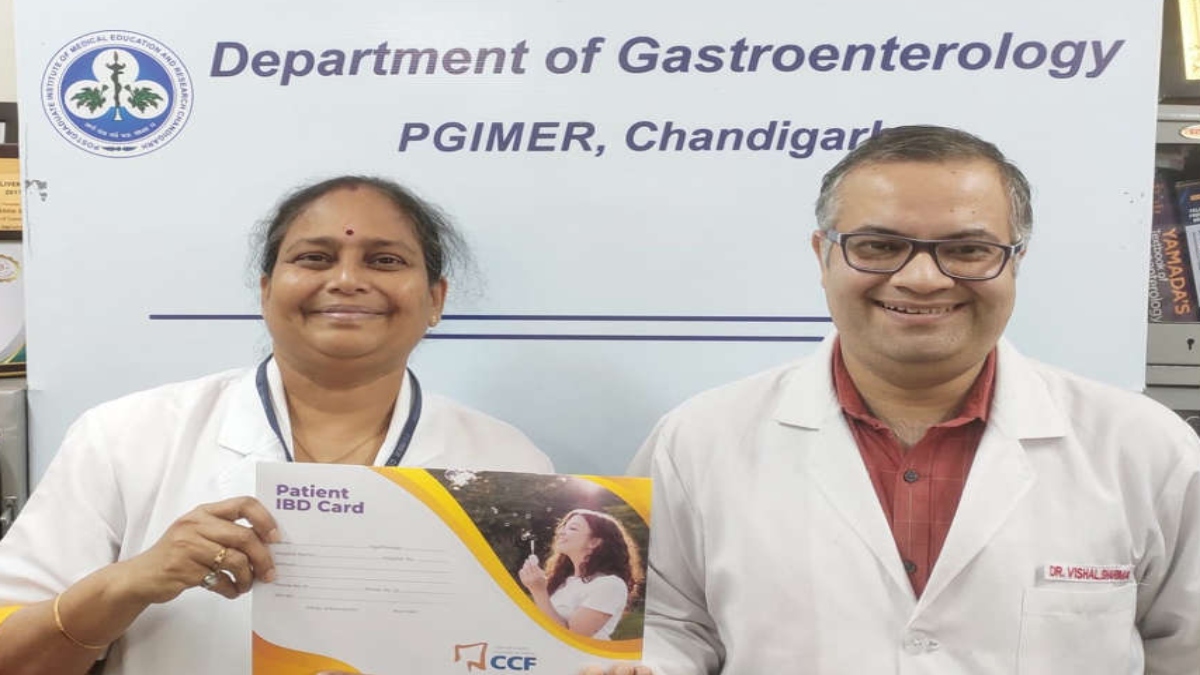


May 19 is celebrated across the globe as World IBD day. Inflammatory Bowel diseases (IBD) are chronic inflammatory conditions of the intestine and are of two main types: ulcerative colitis and Crohn’s disease. IBD is increasing in India and this increase is largely driven by changes in the diet and westernization of lifestyle. A recent editorial in Lancet Gastroenterology & Hepatology described South Asia (including India) as a new frontier of IBD. Some studies have shown that IBD is as common in North India as in the western world. Genetics, immune response, and changes in the dietary pattern also play a role in the causation of this disease. IBD can affect any age or gender. Usually, these patients have abdominal pain, diarrhoea, and bleeding in the stools. The diagnosis is often delayed because of the lack of awareness about the disease in the community, lack of access to colonoscopy, and confusion about other diseases like haemorrhoids, abdominal tuberculosis, and cancer.
The department of Gastroenterology, PGIMER, Chandigarh celebrated the day to raise awareness about the condition and improve the care and treatment of patients living with IBD. Prof Usha Dutta, Head, Department of Gastroenterology, informed that special lectures were organized where the patients with IBD were educated about the disease, the diagnostic tests, various treatment options, the role of diet, and health maintenance. A quiz was organized where patients were asked questions about their health and the top scorers were given IBD Day Prizes. Prof SK Sinha spoke on the nature and presentation of the disease, Dr. Vishal Sharma spoke about the treatment options of the disease, and Prof Usha Dutta spoke about the diet and lifestyle approaches for IBD. Patients who have inflammatory bowel disease asked questions and doubts about their disease and health, which were answered by experts. The patients were also able to visit stalls that provided patient education material and demonstrated methods to use enema, foam, and suppository therapies, which are a cornerstone in the treatment of this condition . On this occasion an IBD card designed by the Department of Gastroenterology, in association with Colitis and Crohn’s Foundation, India was released. This card will provide a snapshot of the disease state and drug therapies with education material and will help improve various aspects of care including diet, preventive health, and medication. The card is designed with suggestions from other experts from AIIMS, Delhi, DMC, Ludhiana, and SGPGI, Lucknow. The card will be available to clinicians and gastroenterologists across the country for use and will be launched through a web meeting on World IBD day.